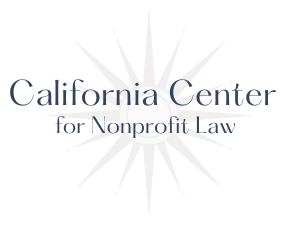
What Charitable Organizations Need to Know about the Latest in Race-Conscious Grantmaking Litigation
Charitable organizations need to know about a recent lawsuit against the Fearless Foundation, a 501(c)(3) nonprofit organization affiliated with an Atlanta-based venture capital firm, which has raised concerns about the role of race in charitable grant programs. The Fearless Foundation sponsored the Fearless Strivers Grant Contest, which allowed eligible Black female business owners to apply for and receive $20,000 grants. As part of entering the contest, business owners were bound by written rules, which Fearless characterized as a “contract.” In exchange for the grant, winners of the contest had to agree to allow Fearless to use their names, images, and likenesses for advertising and public relations purposes.
The American Alliance for Equal Rights (AAER) sued Fearless, alleging that the grant program violated 42 U.S.C. Section 1981 since it permitted only Black applicants. Section 1981 prohibits racial discrimination in making or enforcing contracts. AAER is the same conservative nonprofit organization that successfully sued Harvard and the University of North Carolina concerning their admissions practices, which resulted in the U.S. Supreme Court’s opinion striking down race-based college admissions in Students for Fair Admissions v. Harvard and UNC, 600 U.S. 181 (2023).
The trial court rejected AAER’s rejection of its request for a preliminary injunction to prevent Fearless from continuing to operate its grant program. AAER appealed to the U.S. Court of Appeals for the Eleventh Circuit, which reversed the trial court’s order and granted the preliminary injunction. A 2-1 panel of the Court found that Section 1981 applied to the grant program because it constituted a contract, both by its terms and based on the bargained-for exchange of value between the participating parties. The Court also found that the program did not qualify for any remedial program exception to Section 1981 and was unlikely to be protected by the First Amendment.
Fearless has now agreed to permanently shut down its grant program to settle the pending lawsuit with AAER. The settlement avoids the case proceeding to trial, possibly resulting in an adverse decision and a potential decision by the U.S. Supreme Court, which could have nationwide implications for similar programs.
Charitable organizations offering similar grantmaking programs should be aware of the Eleventh Circuit’s decision. The decision only affects programs in states falling within the Eleventh Circuit – Alabama, Georgia, and Florida. Charities in those states should examine their current programs to determine whether they constitute contracts, thus triggering the application of Section 1981, and if so, modify those programs to comport with the Eleventh Circuit’s ruling. Currently, the decision does not affect charitable programs in other states.
Charities should also understand that Section 1981 applies only to race-based contracting, not racial justice missions. Therefore, charities are free to maintain missions based on racial justice without running afoul of Section 1981. Furthermore, eligibility criteria not based on race, such as those based on gender, income, location, etc., do not involve Section 1981. Due to potential future litigation in other areas of the nation, charitable organizations may want to alter programs to contain non-race-based eligibility criteria, which fall outside of Section 1981. In many cases, charities may be able to tailor the eligibility requirements of their programs in a way that allows them to continue to achieve their mission and reach targeted populations based on alternate demographics.
Finally, charitable organizations should know that grant programs can qualify as contracts, as the Eleventh Circuit ruled. The essence of a contract is a bargained-for exchange of value between parties. The value to the organization may include intellectual property licenses, indemnification provisions, and provisions for specific disposition of disputes. As a result, charities may want to move existing grant programs away from a contractual model to one exclusivity based on charitable giving.
We Meet the Legal Needs of Charitable Organizations
The California Center for Nonprofit Law dedicates its efforts to the daily legal matters that charities face, including ongoing compliance with local, state, and federal law. Call us today at (949) 892-1221 and schedule a time to discuss your case. Get your questions answered and learn more about how we can help.
